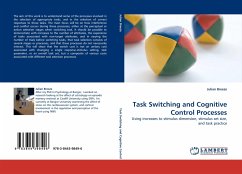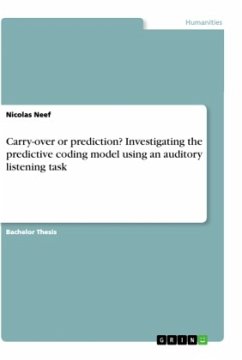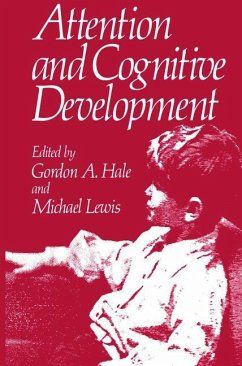
Task Switching and Cognitive Control

PAYBACK Punkte
69 °P sammeln!
This book offers an overview of state-of-the-art research in cognitive control and task switching, which involve the regulation of one's own behavior by reference to internal plans, schedules, and rules.
One thing that separates human beings from the rest of the animal world is our ability to control behavior by referencing internal plans, goals, and rules. This ability, which is crucial to our success in a complex social environment, depends on the purposeful generation of "task sets"-states of mental readiness that allow each of us to engage with the world in a particular way or achieve a particular aim.
This book reports the latest research regarding the activation, maintenance, and suppression of task sets. Chapters from many of the world's leading researchers in task switching and cognitive control investigate key issues in the field, from how we select the most relevant task when presented with distracting alternatives, to how we maintain focus on a task ("eyes on the prize") and switch to a new one when our goals or external circumstances change. Chapters also explore the brain structures
responsible for these abilities, how they develop during childhood, and whether they decline due to normal aging or neurological disorders.
Of interest especially to scholars and students of cognitive psychology, the volume offers thorough, multi-disciplinary coverage of contemporary research and theories concerning this fundamental yet mysterious aspect of human brain function and behavior.
This book reports the latest research regarding the activation, maintenance, and suppression of task sets. Chapters from many of the world's leading researchers in task switching and cognitive control investigate key issues in the field, from how we select the most relevant task when presented with distracting alternatives, to how we maintain focus on a task ("eyes on the prize") and switch to a new one when our goals or external circumstances change. Chapters also explore the brain structures
responsible for these abilities, how they develop during childhood, and whether they decline due to normal aging or neurological disorders.
Of interest especially to scholars and students of cognitive psychology, the volume offers thorough, multi-disciplinary coverage of contemporary research and theories concerning this fundamental yet mysterious aspect of human brain function and behavior.













